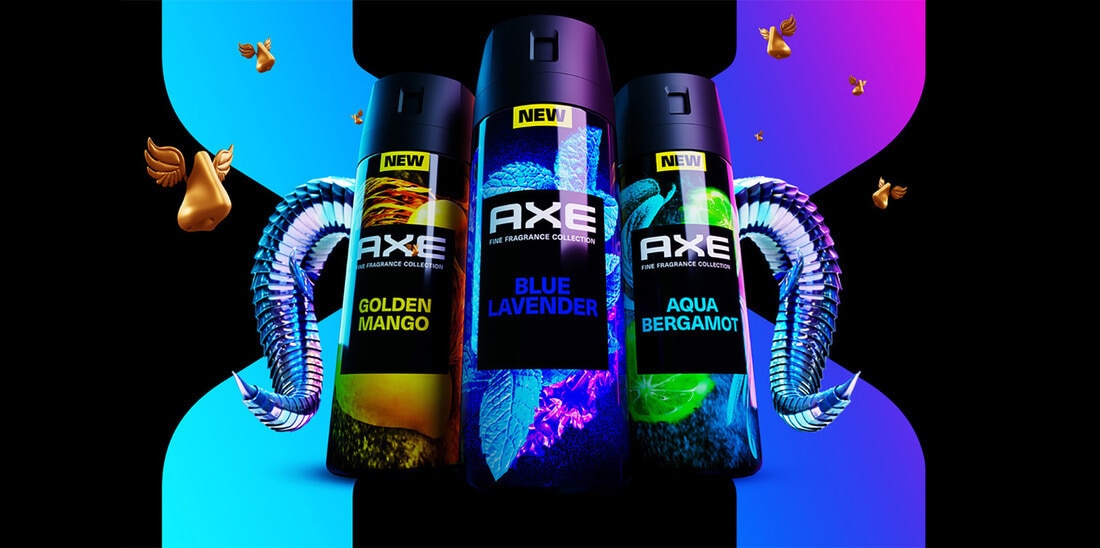Save on the Axe Fine Fragrance Collection
Join our Community and Discover the Axe Effect
Join our Community and Discover the Axe Effect
Save by signing up to receive communications from Axe and other Unilever Brands about exclusive offers, product updates, and more! By signing up, you agree to our Sign-Up and Save Policy and our Privacy Notice.
You’re chilling in class, grinding at work, or on a date, trying to make a good impression, and then—boom—your forehead decides it’s time for a sweat session. “Why does my head sweat so much?” you wonder, as you try to discreetly wipe it away without drawing attention.
Head sweats can be a real buzzkill, but guess what? There are ways to manage it, and we’re here to help with everything from sweat scalp solutions to tips on how to deal with head sweat after workouts.
Sweating is your body's natural way of cooling down. Your head, just like the rest of you, is packed with sweat glands called eccrine glands. These kick in when you’re hot, stressed, or exercising. Since your scalp and forehead have so many of these glands, it’s no wonder they’re the first to start dripping. But why do you sweat so much from your head compared to other areas? Let’s break it down.
When you’re working out or just trying to survive a scorching summer day, your body naturally ramps up sweat production. Your scalp, with its dense concentration of sweat glands, doesn’t hold back. That’s why head sweat after exercise can feel way more intense than sweat elsewhere.
Cool down and cut back the sweating by carrying deodorant, drinking plenty of water to stay hydrated, and dressing in moisture-wicking clothing.
Sweating isn’t only triggered by physical heat; it can also be emotional. Ever felt a bead of sweat roll down your forehead during a presentation or first date? That’s nervous head sweat, driven by stress. It usually targets areas like your scalp, face, and neck.
If you sweat excessively even when it’s cool, you might be dealing with hyperhidrosis, a condition where your sweat glands are overactive.¹ This can make excessive head sweating a daily struggle. A doctor can help you with treatments to keep things under control.
Hormones can flip the script on your body at any time. Puberty or other hormonal shifts often crank up sweat production, and the scalp is one of the first places to feel it. If hormonal head sweat is throwing you off, keep a cooling towel on hand for quick wipes until things balance out.
Certain prescriptions can mess with your body’s thermostat and trigger sweat. If you’ve noticed an increase in scalp sweat after starting something new, mention it to your doctor.
Ever notice head sweat after spicy food or your morning coffee? That’s your body responding to thermogenic foods and stimulants. Spicy meals, alcohol, and caffeine are common culprits. If they're interfering with daily life, try eliminating them from your diet.
Now that we’ve covered the “why,” let’s talk about the “how.” If you’re dealing with nervous head sweat, post-gym drips, or wondering: “Why does my head itch when I sweat?” here are some sweat scalp solutions that actually work:
Pick hats made with moisture-wicking fabrics, mesh panels, or lightweight cotton. Bonus points for ones with built-in sweatbands that soak up excess moisture. And remember, sometimes the best products for head sweat aren’t products at all. It’s giving your scalp some fresh air and skipping the hat altogether.
A hot scalp = nstant sweat. The combination of sweat and oil can block your hair follicles, making your head itch. Bacteria also love this environment, irritating your scalp and leading to itching. What to do? Rinse your hair with cold water after a workout, rock a cooling headband, or even mist your scalp with a spray bottle on super-hot days. A quick cool-down can stop sweat before it turns into a full-on drip.
We all know nervous head sweat is real. Your brain thinks you’re in fight-or-flight, and your sweat glands go wild. To calm things down, try deep breathing, guided meditation apps, or even stepping outside for a quick reset. Think of it as giving your body a mini break so your sweat glands can chill, too.
When you’re low on water, your body tries to compensate by sweating even more. Keep a reusable water bottle handy, sip throughout the day, and avoid waiting until you’re super thirsty.
Sometimes old-school fixes work best. A cold compress, damp towel, or even wrapping ice cubes in a cloth and pressing it to your forehead can cool things down fast.
When sweat feels nonstop and happens even in cool environments, it may be hyperhidrosis. This condition makes your sweat glands overactive, especially on the scalp and forehead. Stress, medications, or hormonal shifts can also contribute to excessive sweating.
Vitamin D and calcium deficiencies have been linked to head sweating in some cases, especially in newborns.² In adults, nutrient deficiencies are less common causes. If you suspect a deficiency, it’s best to get checked by a healthcare professional.
Scalp sweat can show up for all kinds of reasons—tough workouts, spicy food, hot weather, or just nerves kicking in. The upside is that you don’t have to let it run the show. With a few lifestyle shifts, some smart sweat scalp solutions, and the best products for head sweat, you can keep things under control. Stay cool, stay confident, and keep your vibe intact no matter how much your head tries to turn up the heat.
1. Mayo Clinic. Hyperhidrosis. 2024.
2. Only My Health. Can Vitamin D Deficiency Cause Excessive Head Sweating? 2023.
Related Products


